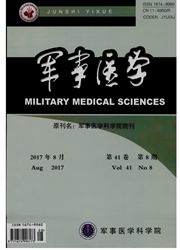

 中文摘要:
中文摘要:
抑郁症是以显著而持久的心境低落为主要特征的情感性精神障碍,其病理生理学机制复杂,涉及一系列神经内分泌的改变。糖皮质激素(glucocorticoid,GC)水平升高、下丘脑-垂体-肾上腺轴(hypothalamic-pituitaryadrenal axis,HPA轴)功能亢进是抑郁症典型的病理生理改变之一,其中糖皮质激素受体(glucocorticoid receptor,GR)在这一过程中起着关键性调节作用。增加GR的表达与功能,从而恢复HPA轴负反馈功能是抗抑郁剂发挥效应的重要机制之一。该文综述了近年来GR与抑郁症的相关研究进展,冀望为抗抑郁药物研制提供新的思路。
 英文摘要:
英文摘要:
Depression is a serious mental disorder characterized by lasting anhedonia and anorexia. The pathophysiology of depression is complicated, which is related to many neuroendocrine disturbances. Increased levels of glueocorticoid hormones and hyperactivity of the hypothalamus pituitary, adrenal (HPA) axis are the most consistent and typical pathophysio- logical alternations in patients with major depression, which are possibly caused by altered functions of the receptor of glucocorticoid hormones, the glucocorticoid receptor (GR). Promoting the expression and function of GR and restoring the impaired feedback inhibition of the HPA axis seem to be particularly important for the therapeutic efficacy of antidepressants. In this review, the role of GR in the development and resolution of depression is discussed.
 同期刊论文项目
同期刊论文项目
 同项目期刊论文
同项目期刊论文
 期刊信息
期刊信息
